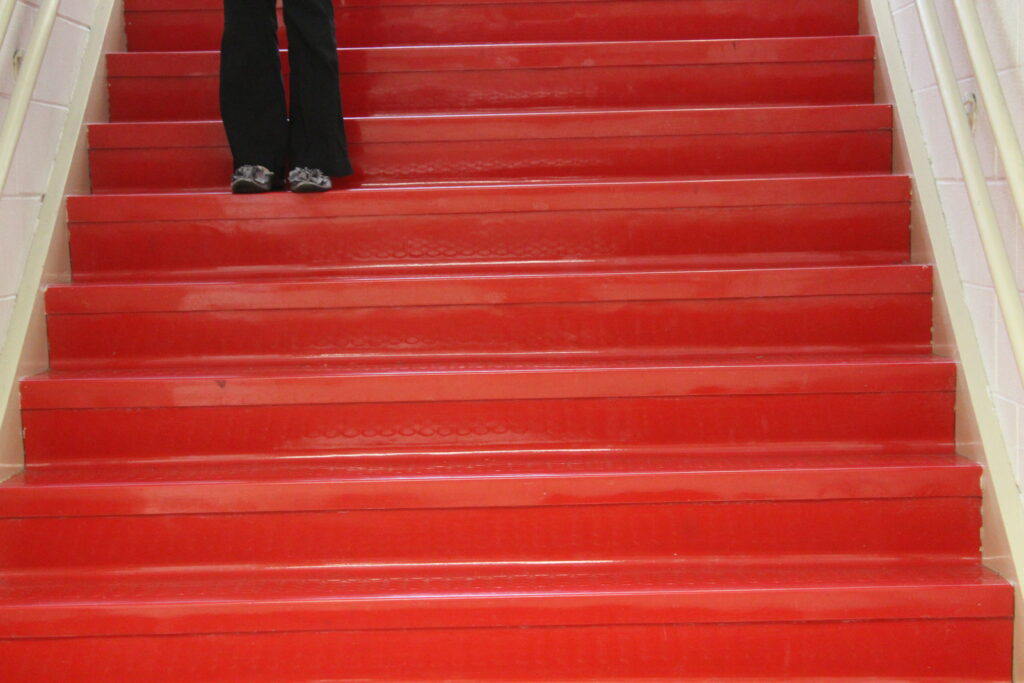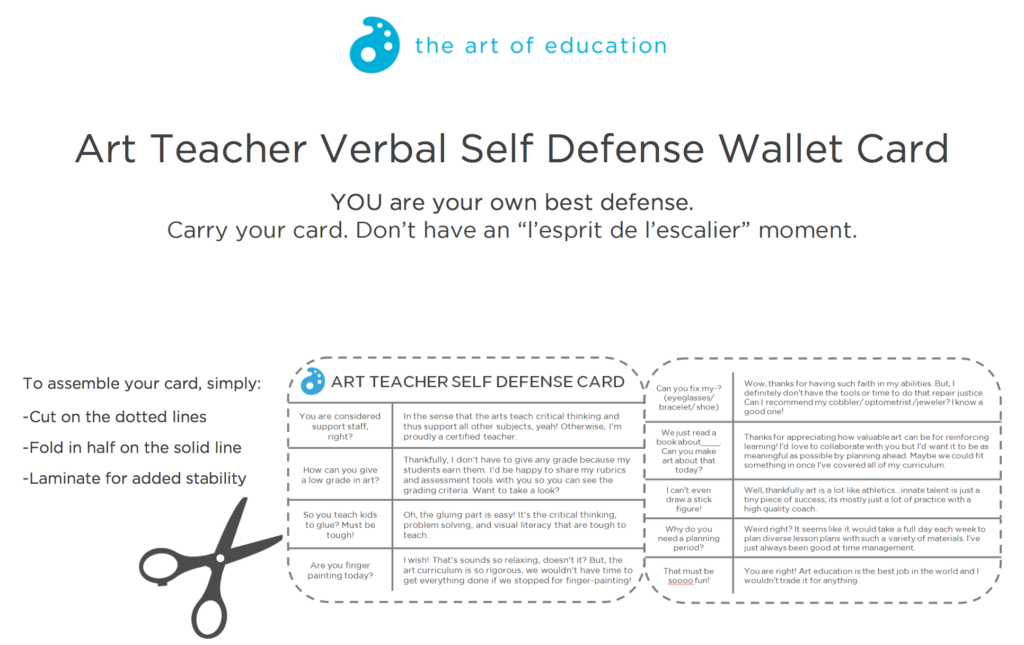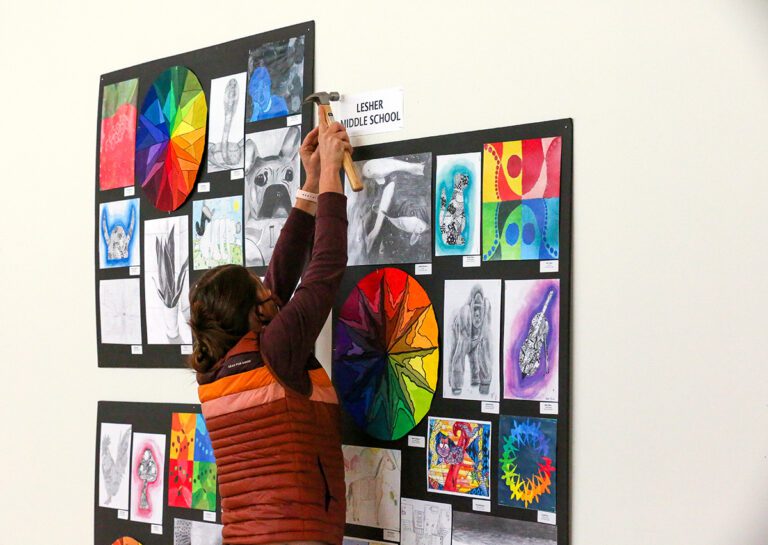Art teachers live in a state of perpetual advocacy. No matter how supportive our school districts are, it sometimes feels like we are constantly working to justify our importance as a subject area. We know how vital our programs are to our students’ education, but there seems to be an unspoken need to continuously validate and promote what we do. Honestly, when was the last time you saw the algebra teacher encouraging everyone to participate in the “math fundraiser” to buy the calculators and protractors that are essential to his/her curriculum?

Even when surrounded by colleagues and parents who support the arts, insensitive comments or questions about our profession can sometimes feel like “death by 1000 cuts.” It seems like a never-ending stream of comments about finger painting, grades, and how easy our job must be. And, if you are anything like me, the right words just won’t come to mind when you are flustered and heartbroken, faced with an “awkward art situation.”
The French have a word for this, l’esprit de l’escalier. It loosely translates to “staircase wit.” We don’t have an English equivalent; but man, we need one! Basically, it describes the frustration of realizing the perfect response to a situation AFTER you leave.

But how can we, as art teachers, spontaneously generate an intelligent and professional retort in the moment? Sadly, because of the emotion involved, we probably can’t. But what we CAN do, is practice a little bit of verbal self-defense…. and I mean literally practice. Here is a step-by-step guide to helping you avoid a l’esprit de l’escalier moment at work.
1. Reflect
During your down time (I know, I know – I can hear you laughing), think about previous comments that caught you off guard. If you had a l’esprit de l’escalier moment, jot down what you wish you had said. If not, take your time crafting an authentic response that reflects your passion and belief in what you do. What will you say, for example, if someone asks why you need a plan period?
2. Rehearse
Once you have these brief scripts, review them while driving or in the shower. Rehearsing what you “might say” prepares you to respond gracefully when the inevitable happens.
3. Revise
Sometimes, when you are deeply offended by a comment, the gut reaction can be snarky, passive aggressive, or sarcastic sounding (at least my inner voice is!). Try your response out on a loved one. Ask for their feedback on your message and tone. Does it sound sincere and professional? If not, revise!
To help you get started, I asked the AOE team to share questions or comments that have ruffled their feathers in the past, and they gave me a great list. Boy, I have heard more than a few of these! I took a while to let the comments marinate, and then created some potential scripts. To make it more fun, I’ve created an “art teacher’s verbal self-defense wallet card.” Simply download the card, cut it out, and keep it in your wallet.
Download the Card Now!
Hopefully, when you see it, you will feel inspired and supported, because we are all in this together and advocacy is our mission! Go practice up, so you can be your own best defense!
What art the comments that drive you nuts?
How do you handle them?
Magazine articles and podcasts are opinions of professional education contributors and do not necessarily represent the position of the Art of Education University (AOEU) or its academic offerings. Contributors use terms in the way they are most often talked about in the scope of their educational experiences.






